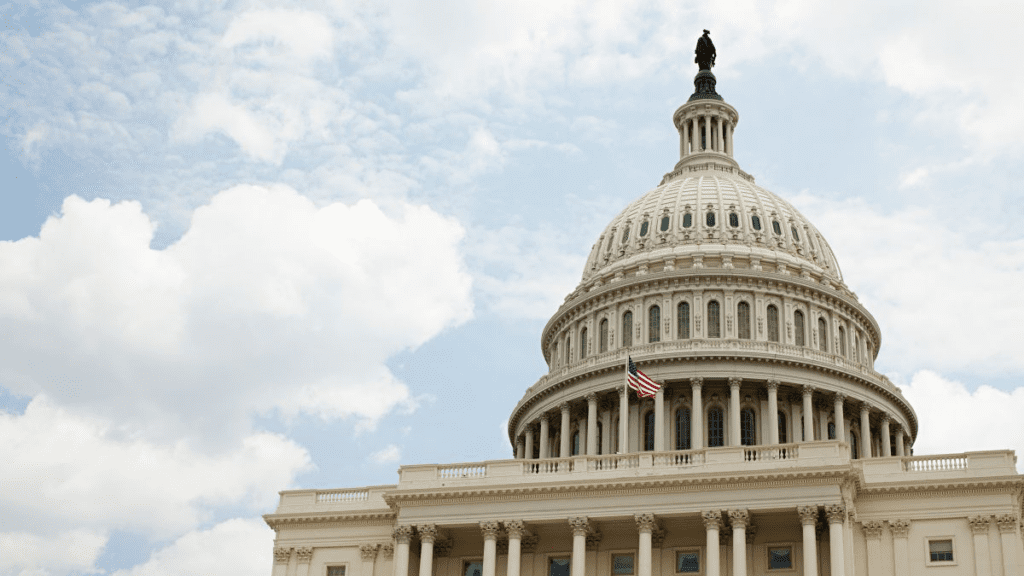Key Points:
- House Democrats are exploring their version of the long-awaited stablecoin bill.
- In terms of consumer protection and Federal Reserve veto authority, it differs from the Republican approach.
- Both proposals identify payment stablecoins as a distinct asset class, however, the Democrat plan prohibits algorithmic stablecoins.
According to a CoinDesk report, House Democrats are exploring their version of a long-anticipated stablecoin bill, but their views show a significant schism with a parallel Republican attempt.

The plan, which is a follow-up to one led by Reps. Maxine Waters (D-Calif.) and Patrick McHenry (R-N.C.) last year, comes just weeks after Waters said that Congress must start from fresh on legislation addressing this segment of the cryptocurrency market.
Stablecoin legislation has been a key goal for US politicians seeking crypto regulation. Last year, the House committee’s leaders were close to introducing a compromise. It was made public before a hearing on the topic last month. The committee’s leaders are pulled in various ways because of that paper.
Republicans on the House Financial Services Committee just approved a fresh stablecoin bill draft. Yet, the panel’s Democrats, notably Waters, the committee’s senior Democrat, were irritated. She had openly protested that the attempt was made without Democratic participation and that legislators should start again.
According to a source familiar with the measure, the new Democratic version focuses on consumer protection problems. It would prevent non-bank stablecoin issuers from accessing Federal Reserve programs. The Democratic plan also maintains the prohibition on algorithmic stablecoins, which the Republican equivalent abolished.
Both approaches agree on the definition of payment stablecoins as a special sort of digital asset.
Latrice Walker, a Democrat from New York State, submitted Assembly Bill 7024 on May 10 to change the criminal process legislation to allow the use of dollar-pegged stablecoins as a means of payment for bail bonds.
If the measure is enacted, fiat-backed stablecoins like Tether’s USDT, Circle’s USDC, Binance USD (BUSD), and TrueUSD (TUSD) might be used to pay the bill bonds inside the state. It should be emphasized that the law did not refer to any specific stablecoin.
Circle, one of the stablecoin issuers, is proactively shifting its Treasury assets in preparation for an impending debt limit crisis in the United States. Moreover, the fintech behemoth guarantees that none of its assets mature beyond early June, avoiding any possible impact from a US government default.
DISCLAIMER: The information on this website is provided as general market commentary and does not constitute investment advice. We encourage you to do your own research before investing.
Join us to keep track of news: https://linktr.ee/coincu
Harold
Coincu News






















